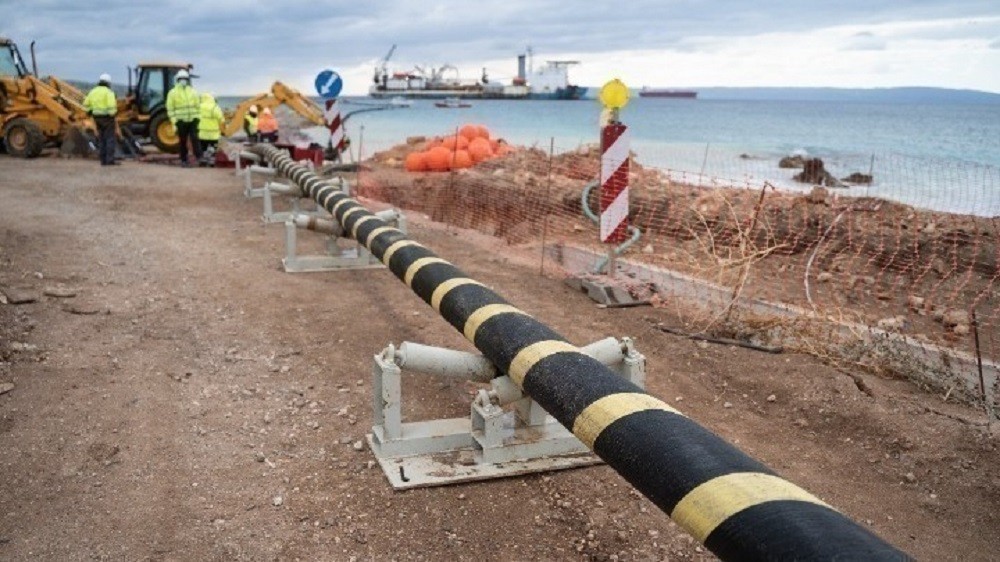
A Tale of Two Visits: The differences between Senator Menendez and Vice President Biden
In 2014, Vice President Joe Biden became only the second United States Vice President to visit the Republic of Cyprus (Lyndon Johnson being the other). His trip generated excitement and anticipation of better days ahead for Cyprus, and reinforced Biden’s reputed philhellenism from his service in the US Senate. This week, an even greater philhellene – Senator Bob Menendez – visits Cyprus, and there are many reasons to believe that this visit may be even more important than Vice President Biden’s.
To be sure, the Biden visit was historically significant – and not merely because a Vice President set foot on Cyprus. For the first time, it seemed that the U.S. government decided to “walk and chew gum” at the same time by working on the bilateral relationship with Cyprus simultaneously with supporting reunification negotiations. The greatest excitement came out of Biden’s focus on the bilateral relationship, his declaration of a “strategic partnership” between the U.S. and the Republic of Cyprus, and these remarks:
- The United States — I want to be clear about this — recognizes only one legitimate government of the Republic of Cyprus, and my visit and meetings throughout the island will not change that. It is my personal position. It’s the position of the United States of America, and it’s the position of the entire world — save one country.
Still, U.S. policy on Cyprus did not really change. The “strategic partnership” was still hampered by the arms embargo on Cyprus, and despite repeated declarations that there would be a loosening of the embargo or waivers granted for non-offensive equipment, the U.S. refused to enable Cyprus to acquire Coast Guard vessels or night-vision goggles. There were follow up meetings between President Anastasiades and Vice President Biden and a visit to Cyprus by Secretary of State John Kerry, but no policy substance was advanced to back up the words “strategic partnership.”
The Vice President and State Department in fact reverted to prioritizing the Cyprus negotiations above all else. In a “legacy defining” as the 2016 election approached, Obama Administration officials convinced themselves that they could achieve a breakthrough on Cyprus. Holding the bilateral relationship with the Republic of Cyprus hostage to reunification negotiations ensured no breakthrough on either front.
Five years later, Senator Menendez arrives in Cyprus with the same commitment as Biden. The main difference is that he has put substance behind the words “strategic relationship” with the Eastern Mediterranean Security and Energy Partnership Act.
We don’t yet know the path that this Act will take and when it will formally define U.S. policy, but one thing is for certain: the “strategic relationship” with Cyprus and the alliance with Greece are now part of the public debate in the U.S. Consider the following:
- The publication Foreign Policy analyzed this act in an article “U.S. Lawmakers Talk Turkey to Ankara” – and discussed U.S. cooperation with Cyprus and Cyprus’ role in the region without referring to the Cyprus problem.
- Amanda Sloat – the Deputy Assistant Secretary of State during the Biden visit – tweeted: “In further Senate messaging to Turkey, [Senators] Menendez and Rubio introduce Eastern Med bill that seeks to bolster security and energy [cooperation] with Greece and Cyprus. . .”
- Soner Cagaptay – the Director of the Turkish Program at the Washington Institute for Near East Policy – tweeted: “U.S. has long considered Turkey linchpin of its Eastern Mediterranean security architecture, along with Israel. This policy is changing, with Greece gradually replacing Turkey. The move, though slow, akin to a giant tanker altering course in open seas, has long-term ramifications.”
The introduction of the Act itself, with the bipartisan sponsorship of two of the Senate’s – and the country’s – foreign policy heavyweights has changed the lens through which Cyprus is viewed. Cyprus is no longer merely a “problem,” but part of a “solution” to floundering U.S. policy in the Eastern Mediterranean.
The Act will provide several other milestones that push this narrative forward: its introduction in the House of Representatives; additional Senators and Representatives signing on; hearings in the Congressional committees; etc. Upcoming announcements by ExxonMobil and exploration by Total and ENI will continue to reshape the image and significance of Cyprus in the U.S.
Senator Menendez is providing leadership on correcting U.S. policy in the region. Now both officials and the public in Cyprus and in Greece treat his trip with importance it deserves. The Senator’s trip should not be used as a photo-opportunity, but as a chance to hear him out in what is needed to entrench Greece and Cyprus as lynchpin’s to U.S. strategy in the region. If the latter is achieved, April 2019 – with the introduction of the Act and the follow up Menendez visit to Cyprus and Greece – will be remembered as the key month.
The road to hell: The eagerness to whitewash Turkey’s actions, mollify Erdogan’s demands

